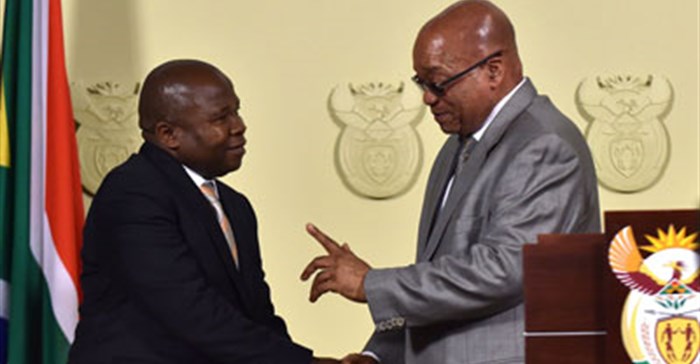
Top stories






More news














So the question is will the private sector step up to the plate again as the the country sits on the brink of fiscal collapse, with the prospect of zero percent growth?
Experts at a post-Budget Speech panel discussion that took place at the Sandton Convention Centre, believes that the private sector is the key to solving many of the country’s current problems, including moving into a growth scenario. The finance minister’s budget and its big message – the need to get growth back - formed the backdrop to the discussion.
The panel, hosted by financial journalist, Bruce Whitfield, includes PwC’s Lesley O’Connell and Kyle Mandy, Dr Iraj Abedian - chief executive of Pan-African Capital Holdings, Dennis Dykes - chief economist, Nedbank, Sneha Shah - managing director, Africa, Thomson Reuters and Prince Mashele - political analyst.
After a honeymoon period of 20 years, in which it cruised on autopilot, South Africa is in a tight spot. Opening the event, Southern Africa CEO of PwC, Deon Shango, spoke about the need to build an inclusive society and that all South Africans have a role and responsibility in achieving this goal.
“With the many challenges we face locally, such as high unemployment and low growth, exacerbated by the increasing complexity we see in the global environment, there is an urgent and pressing need to build a more inclusive society for a better South Africa.”
"It is not enough anymore that we (business) hold conferences and press briefings to show we are together and focusing on the positive," says Shah. She pointed out that the growth rate in Kenya is well over 6%, and this is because the private sector plays an active role in that country through engaging with government.
It is the strength of our institutions, especially our courts, that are our fundamental strength and saving grace at this point in time. “In combination with our citizens and private sector we could change the country,” says Mandy.
“We need to play to our strengths, we focus on our weaknesses too much,” says Abedian. “Business knows how to solve problems, such as education. We have a robust private educational section, the same can be said for our private health sector. Why not use the same capability?”
South Africa was compared to Rwanda, both started the rebuilding of their countries at the same time but unlike South Africa, Rwanda has made leaps and bounds. “We started with such a favourable positioning in 1994. The gap between ourselves and Rwanda is a terrible indictment and shows we have not used our opportunities,” says Dykes.
Shah says the country has many resources. “We have lots of challenges but our resources are greater - in fact we have more resources than any other country on the continent, even the world.”
It was noted that the budget took place against the backdrop of the swearing in of Brian Molefe, previous Eskom CEO, as a member of parliament (MP). What also made this budget difficult is that the minister and his department is under seige from his own boss and party, says Mashele.
“With the president, only in power for another year, he needs to make hay while the sun shines and so wants Molefe in the treasury. His first job would be to sign in the nuclear deal and then our children and grandchildren can say goodbye to cheap electricity for ever.”
